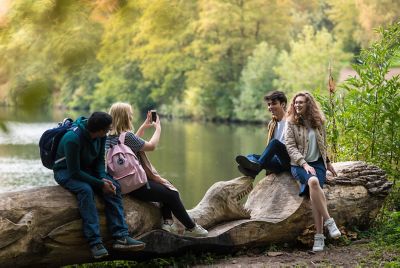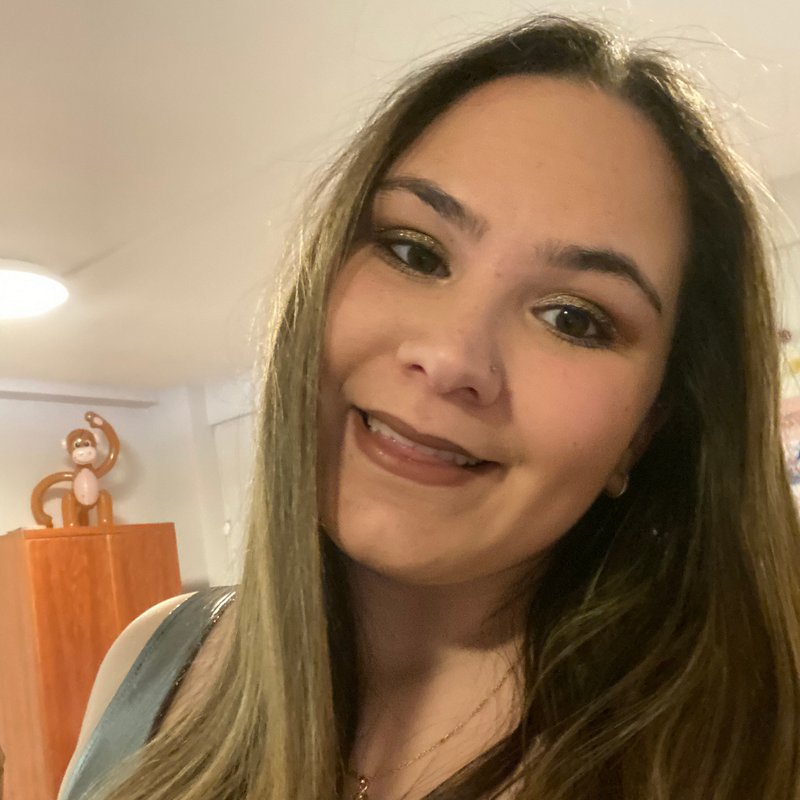

Zoe, a Liberal Arts Foundation student

I've absolutely loved it, I've really enjoyed the course. It's a really great introductory year with six modules all surrounding different subjects within the Faculty of Arts. It teaches you how to become a student, and is a really good foundation to university life. I’m really glad I decided to take this amazing opportunity.
Coping with the transition to uni life
University life is quite different to being at school, you're a lot more independent and are living on your own as opposed to being with family. The workload is different too, it’s more challenging than A-levels as you need to manage your own workload to keep up, whereas at school you’re obviously told exactly what to do and when it needs to be done by.
About Foundation Arts
We’re taught skills which we might need next year - like referencing and how to write a university standard essay, all things we wouldn’t be taught if going straight into a degree course.
For example, we’ve been introduced to different study methods and I’ve found the Pomodoro method really helpful. Which is working for 25 minutes and then taking a five-minute break. I have an app on my phone to manage the timings and it’s really motivating, I don’t want to stop studying before the time is up, if I use my phone then the timer resets.
Course content
In foundation, we study six modules. They are all so different, but you can write most of your assessments focusing on your destination department (Liberal Arts, for me), so it makes it really interesting. For example, I had to write an article review for 'Language and Culture' and I chose to write mine on an article about the female representation in the James Bond films.
In the 'Important Thinkers Through History' module, we’ve been looking at influential people through history. We cover a new person every two weeks and each person we study relates to a course within the Faculty of Arts. For example, we’ve studied Martin Luther King who relates to history, Confucius who is a philosopher and we’re going to be looking at Steven Spielberg later this term who is a film director.
I am really enjoying this module because I am being introduced to some really interesting people by looking at things they created as well as their stories. The assessment for this module is also something I am looking forward to, we are doing a group project with people who are doing the same course with me next year, and we are creating an academic poster together.

Throughout this year, we’ve been working on a 4000-word dissertation which is due in the spring. I am finding this the most challenging part of foundation year but it is a lot less daunting than I originally anticipated. I think it is really useful because it prepares us to write our third-year dissertation. So when that comes around I think I will be a lot less stressed knowing I have already written a research piece in foundation year.
We also have a module called 'Critical Thinking and Reflective Learning', which teaches you how to study like a university student. We learn how to construct an argument and present it in an essay.

When I enter the first year next year I think I’m going to feel pretty confident as I’ll have learnt all the key study skills, plus more.
We also learn how to become media literate in Media, Communication and Society. This is very important because some of the studying we do at university is online, so we need to be able to tell the difference between a credible source and fake news. This semester in MCS, we are also having workshops on different types of media and how to use them. This is super useful as we are being taught how to edit a video or how to record high-quality audio.
In May I have an assessment in the Narrative and Creativity module, where we have to create a narrative creative piece which could be anything, such as a short story or play. I think that I’d like to create a short film. I’m hoping to be able to use the Digital Transformation Hub to borrow cameras and edit in Premier Pro.
Making friends
The other students on my course are lovely. They're not all school leavers either, some have taken gap years and a few are quite a bit older, which is lovely. It's really interesting to talk to people starting university who are at all different points in their lives.

I've made a really great group of friends during my foundation year.
The lecturers
We've got three amazing lecturers on the foundation course Pete, Doug and Sasha. They deliver our lectures, hold our seminars and are also our personal tutors. I think it's nice because we get to know them really well. They're very approachable and I know that most of us message them all the time. They’re so quick at answering all our random questions. I know a lot of my friends on different courses have many different lecturers so it’s great that we get to know ours so well as we see and speak to them almost every day.
Extracurricular activities
I’ve taken on a few roles of responsibility since starting university: I’m on the Halls Council as a subject ambassador as well as being a course rep and a student vlogger. Whenever I was offered an opportunity to do something extra I said yes. I enjoy doing stuff to help people and you get paid for doing it, so it’s nice to get a little bit of extra money as well!
It’s made my university experience better, I’ve got to meet some new people that aren’t in my halls or friendship group and it’s been great to see changes made as a result of our suggestions. It’s nice to see that I’m making a difference.
Zoe's advice
Don't say no to anything! If people ask you to do something in your first week, say yes. I was given that advice and I’m glad I took it, it’s due to some of the weird stuff I did in my first week that I met the people who have become my closest friends.




